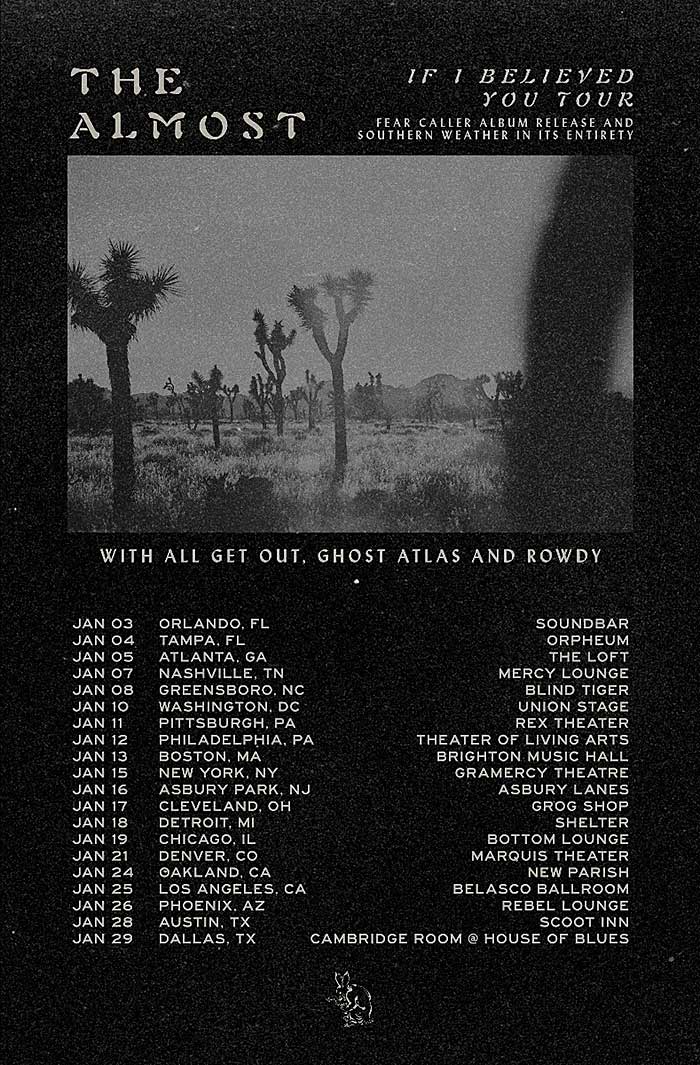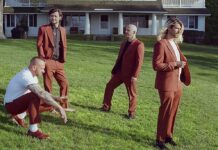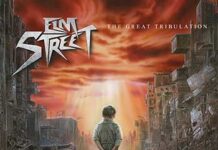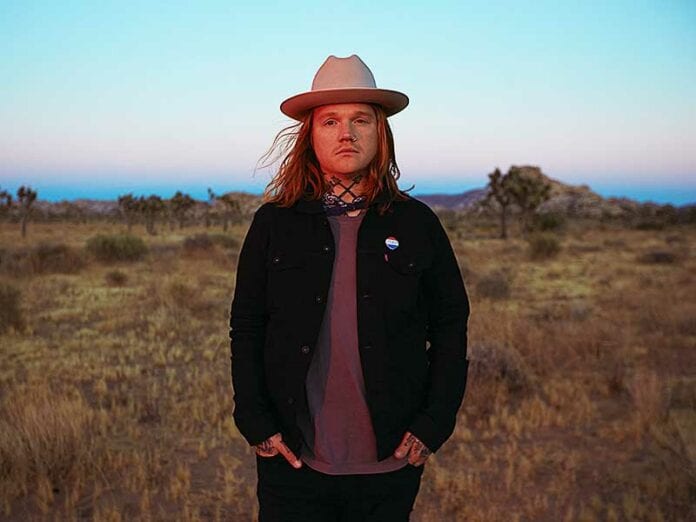
INTERVIEW WITH AARON GILLESPIE BY JAMESON KETCHUM
Six long and quiet years have passed since The Almost last graced our speakers. With a very public saga of the demise and subsequent rebirth of vocalist Aaron Gillespie’s juggernaut of a full-time job, drumming for Underoath, fans of his side gig weren’t holding their breath for a follow-up to 2013’s Fear Inside Our Bones. As fate would have it, keeping fans in the dark is exactly what Gillespie needed to complete Fear Caller, the record that will arguably go down as the most profound, honest, and eclectic record to his name. Drawing from American classics such as Tom Petty and Bruce Springsteen, Fear Caller finds Gillespie exiting the desert of life, providing more answers than questions and claiming where he has landed as a man and as an artist.
You’ve said that Fear Caller is the most honest you’ve ever been. Does this include all your projects? What prompted this level of honesty this time around?
I tried to make it cover everything I’ve done, but you don’t realize if you’ve done it the right way until afterward. With me, for this album, it’s so my now as a man. I wrote it in the middle of the Erase Me tour. We finished the big Erase Me tour, and I was sort of just like, “I have this creative fire in my belly,” which I shouldn’t have because we just made this Underoath record and did this big tour. But I knew it wasn’t Underoath. Anytime I’ve made any record, I’ve gone out and meant to do it. This was just sort of where I started writing songs and I was in the middle of doing all this other stuff for EDM markets and other people. Then it just hit me, “I think I’m gonna ask my manager about me doing some Almost stuff, touring, etc.” I just felt like I should make this record. I just went and did it. I wrote the songs over December of last year, and it just kept rolling. I wrote like 35 or 40 songs because I felt like I had something to say. It’s rare in a musician’s life that if you’re successful in this business it’s like you get wrapped in these cycles. You make an album, you tour for two years, you do appearances, you do this bullshit, and it’s over. Then you make another album. It’s just a really cathartic time, that’s why I feel like it’s the most honest. At the age that I am and where I am as a man, I just don’t want to play around anymore. I have a seven-year-old. I’m not interested in being famous. I want to tell the truth in my music, and I want people to find solace, anger, or sensibility in their situation. I’m not interested in caring anymore about your typical shit.
“I’M NOT INTERESTED IN BEING FAMOUS. I WANT TO TELL THE TRUTH IN MY MUSIC, AND I WANT PEOPLE TO FIND SOLACE, ANGER, OR SENSIBILITY IN THEIR SITUATION.”
These bands a lot of us grew up with have now made it and are dealing with heavier things in life. It’s cool to hear artists such as yourself just say, “Let’s see what comes out.”
It’s super freeing. A lot of interviews ask the same questions, but nobody has talked about this. I’m not gonna go out there and make trap music. It’s the most popular music in the world, but I don’t care. People like it, but it’s not for me, so I’m not going to go and try to make it. It’s funny that a lot of us are still making this music and all bets are off. It’s not mainstream like it used to be.
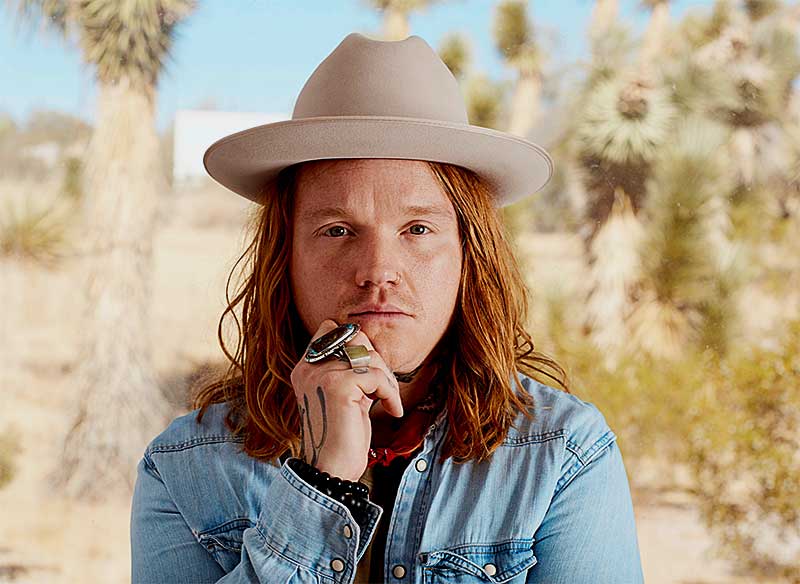
It’s all the realest stuff.
It’s wild. I often wonder how and why did it take so long for us to become so honest and really put our guts into our craft. But I guess when you’re 22 or 23, you think you are. Maybe it’s all cyclical, that’s a two hour conversation.
This record felt like it came out of nowhere. Why the shorter roll out?
I feel like people don’t buy music anymore. It’s consumed and forgotten about so fast. When we put out the previous Underoath record, Erase Me, people were saying, “That was a great record,” and I’m talking six to eight weeks after it came out. We hadn’t even done the first headlining tour. It’s just a different time. For me the new model that I’ve adopted is just to get it out there, get it heard, make it public as fast as you can. You can look at it like the world is ending for musicians, but it’s this really cool blank space you get. It’s warranted, it’s okay to do it. You could just release something six weeks later. It’s a different time. There’s so much music out there at so many different times.
Plus we all have terribly small attention spans.
That’s where we live. The thing is everything is accessible and everything is now. It’s a little prophetic in a sense that there’s this guy named Dave Eggers, he wrote a book called The Circle. It’s about this group of people that start this technology company, and everything and everyone becomes accessible. There are cameras on police and all this stuff we have live now. With everything being so accessible, you can’t overdo stuff. It’s not cool to be there all the time now. You have to make it special, or don’t put it out.
But you work your whole career to become someone who is known, but now it’s almost as if we’re saying, “But don’t be too known.”
It’s so weird. We have this saying in Underoath, “Make yourself scarce.” Back in the day, we toured 12 months a year at certain times. Now it’s like we can only really viably do one American tour a year. It’s a strange thing.
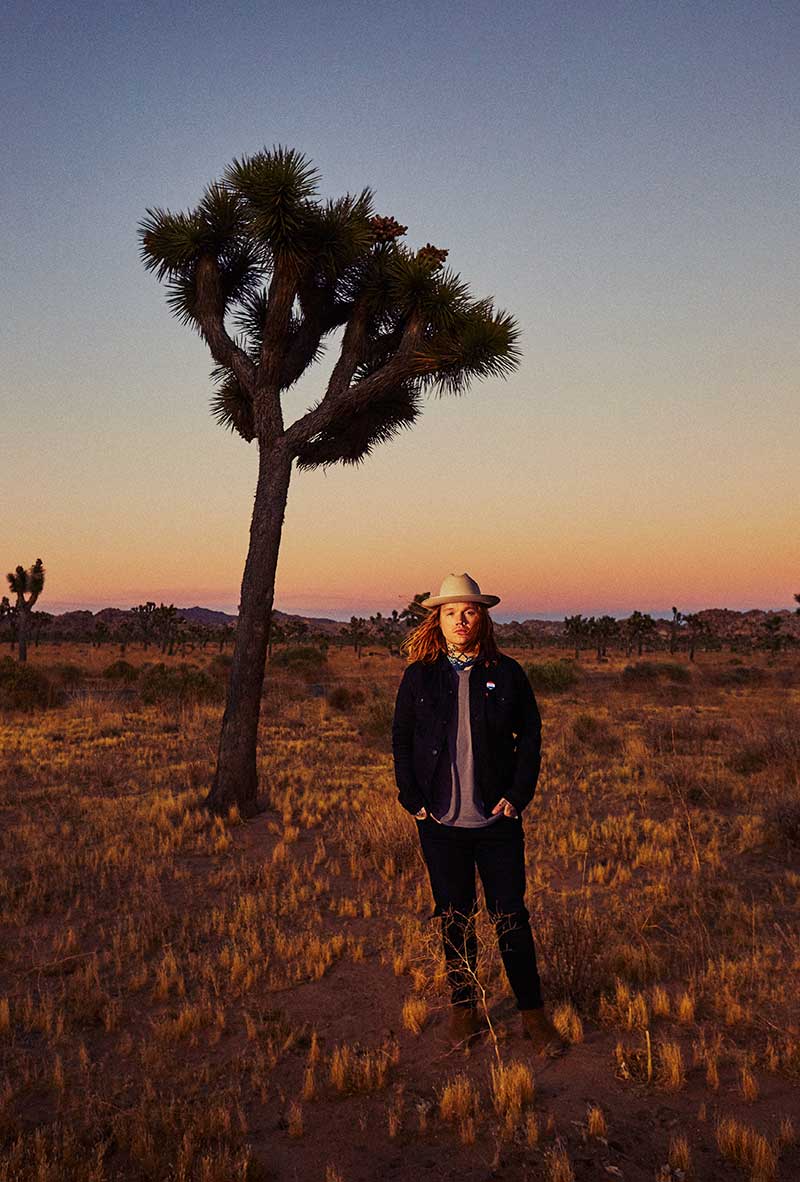
I think you touch on that in “Tame a Lion.” You explain that if something isn’t working, you should cut it off. Is there an example of that in your musical career you can point to?
Oh, gosh. I think about it all the time. We just started messing around, writing songs for the new Underoath record, and I know myself enough to know that none of these new songs will make it on the record, not one, and there’s some cool stuff here. I bought a larger format hard drive for the studio and I was emptying one hard drive off, and I started clicking on stuff from last October through January and the songs were for this Almost record and they were awesome. They’re gone and they’ll never see the light of day because my process is so haphazard. Am I shooting myself in the foot for missing these things? Hindsight always has magnifying glasses.
“SOMETIMES THINGS AREN’T AS HONEST AS I’D LIKE THEM TO BE BECAUSE I’M TRYING TO OVERCOMPENSATE FOR A FEELING I HAVE.”
It’s crazy to look at an artist like yourself, who’s been at it for years and has done several different projects, and you still don’t necessarily have a set formula.
I feel a real palpable responsibility for the people we make music for. It’s a weird thing. I’ve had really good success in this business. I’m making art, my son has everything he needs and too much of what he wants. I don’t go to bed at night wondering where my next meal is going to come from. It’s all because people purchase music that I created. For me it’s a heavy responsibility. That’s my biggest hang up in this industry—sometimes things aren’t as honest as I’d like them to be because I’m trying to overcompensate for a feeling I have. That feeling being like these people bought half a million copies of some record, so is it wrong to make a record that we are selfishly in love with? I don’t think it is. We’re doing them a service by making something that we feel is quality and honest, and at the same time people get disappointed just because it isn’t like their old favorites, then what? I experienced a lot of this with the new Underoath record. It debuted at #4, and it’s doing all these things we haven’t done before. It wasn’t like, “Let’s get famous!” People were fuckin’ pissed. Most people liked it, but the loudest voices are those 100 kids in their parents’ basement with an internet connection. You feel a responsibility, but then you wonder if you let those people down by not making Define the Great Line Part 2. But would that be a disservice to them? How do you know?
Someone asked Davey Havok when AFI would make something like Black Sails in the Sunset again, and he answered, “If my whole goal as a musician is to progress and grow, why would I ever go backward?”
I was talking to someone the other day who was talking about somebody’s first record. Why do we love first records? We hear it all the time. I hear it constantly. I hear myself say it sometimes. I figured it out recently. We say that because people’s first record had no pretense. There was no, “You gotta sell 100,000.” It was just, “Let’s put it all on there, blood and guts.” I’ve been really fortunate because the last two albums I got to make, The Almost and Underoath, no one was looking forward to these records. There was nothing on the line and that’s why you get what you got.
“I’M MOST INTERESTED IN INSTINCT, WHAT MAKES YOU FEEL A CERTAIN WAY AND HOW DO YOU GET THERE.”
You’ve said you work better under the gun. Can you expand on that? That can’t always be doable when you’re creating with other people. I’ve always done better. If someone says you have a week and a half to make this album, in your head you’re like, “Fuck no.” I’ve always just worked better that way—go go go. I don’t know why. I want greatness, but I want to feel like it just happened. The biggest enemy I have as a songwriter is something being contrived. I think that’s the biggest, scariest thing for guys like me. You ever listen to an artist try to make a style change and it’s blatant and you’re kind of embarrassed and it’s not really working but they’re doing it anyways? I feel like that’s the biggest enemy to what we do. I feel like when you’re against the gun to hurry up and make something, you run off instinct and you don’t have a chance to contrive. I’m most interested in instinct, what makes you feel a certain way and how do you get there.
So, would you say you don’t edit much?
I don’t edit as much as I should. I think that’s a harder thing about The Almost. In Underoath, we’re very honest with each other, like, “Oh, that sounds like dog shit.” I don’t have a couch to look behind me and say, “What do you think?” You look behind yourself and there’s your ugly face in the mirror. There’s an element of trust. I probably should edit myself more. I hear friends saying they’ve been trying to make a record for five years. I’ve never had that happened. Music usually comes out of an adverse time. I don’t write when I’m happy. I write for other people when I’m happy. I take their situation and make it mine, but I don’t write for myself when I’m happy. People say, “I want to write a happy song,” and I just don’t relate to that. Being in that gun to the head situation, it’s more freeing for me.
